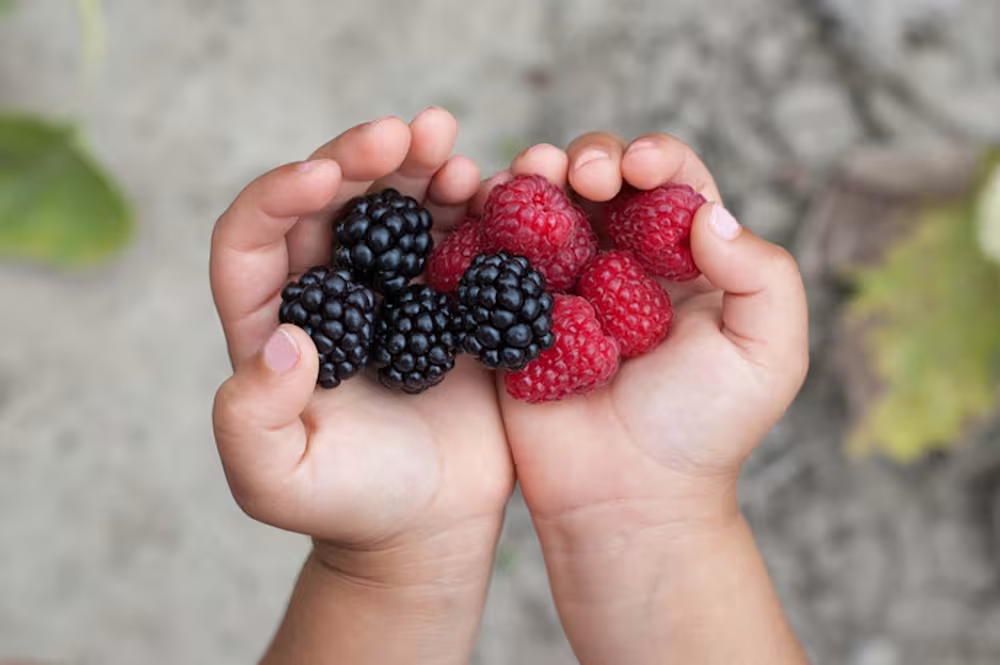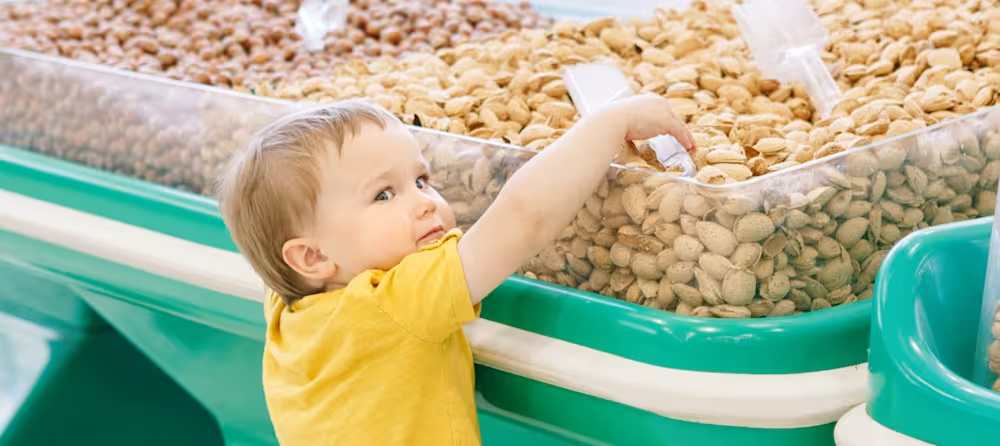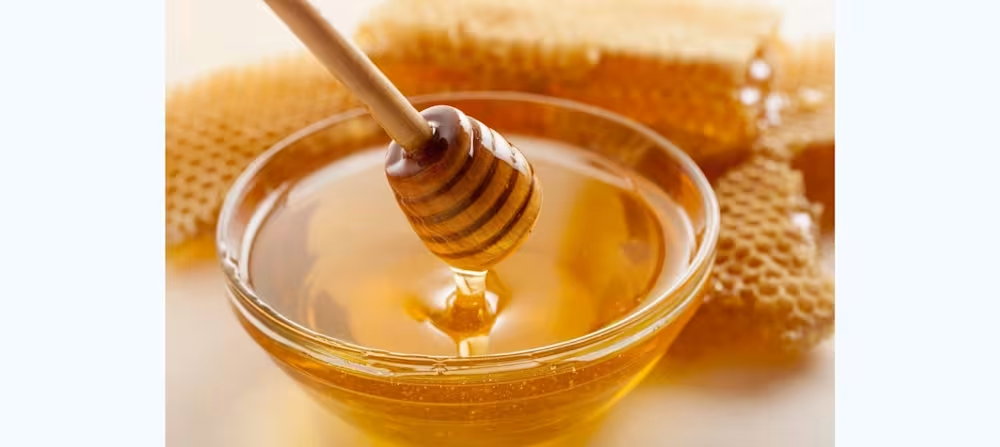Eggs for babies: When can babies eat eggs?
Updated Jan 02, 2026

There’s a lot of confusion out there when it comes to feeding eggs to babies, but you’re about to learn how to introduce this easy-to-prepare, nutritious food.
We’ll discuss the important nutrients your baby will receive when adding eggs to their diet, fun ways to serve eggs (both for baby-led weaning and a more traditional feeding approach), and how to minimize the risk of allergy.
Can babies have eggs?
Yes, absolutely! Eggs are a great choice for a , as soon as they are ready to start solids around 6 months. Accessible, affordable, easy to prepare, and packed with nutrients, eggs tick all the first food boxes.
Now, you might be thinking, but what about allergies?! Despite being a common (we’ll also discuss the details below), eggs are still an excellent choice to add to your baby’s diet.
Are eggs healthy for babies?
Eggs are full of high-quality protein and contain key vitamins and minerals that are important for your baby’s growth and development. They are nutrient-dense, meaning there’s a lot of nutrition in a small package, which is a great quality to have in your baby’s first foods. Research has shown that eggs improved infant growth in resource-poor settings [].
When first starting solids, your baby won’t eat much, so offering nutritious food like eggs ensures they get the most of what they need out of every little bite.
Egg nutrients for babies
The white and the yolk of the egg each contain unique nutrients, which make the perfect combination. The egg white provides protein, and the yolk provides fats. Offer your baby both the white and the yolk to give them everything that eggs have to offer.
In both the egg white and yolk [], your baby will get all of the essential amino acids. Your baby needs these as building blocks to make the proteins required for healthy growth and development.
There are some additional nutritional benefits to the egg yolk, where most of the nutrients are found []. Egg yolks are:
An excellent fat source, giving your baby energy and essential fatty acids required for many body functions.
One of the best food sources of choline, an often-forgotten nutrient that is needed for the body’s cells as well as brain development and memory function. Note: breastmilk is also a good choline source [].
A supplier of some vitamin D, which is needed to build healthy bones and a strong immune system
On top of all of this, eggs are a source of B vitamins, vitamin A, vitamin E, selenium, and iron []. We said eggs were nutrient-dense, and we meant it!
When can babies eat eggs?
Eggs can be introduced at approximately 6 months of age when your baby is . Along with other iron-rich foods like meat, tofu, legumes, and , eggs are a great first food option. Because of their versatility, you can continue to offer eggs regularly as your baby grows.
Can babies between 6 to 9 months old eat eggs?
Yes! Eggs are a safe and nutritious first food option for your baby when they are getting started with eating solids. Being nutrient-dense is one of the best qualities of eggs during this timeframe.
Can babies between 9 to 12 months old eat eggs?
You bet. As your baby develops their feeding skills and starts to eat more food, eggs will be giving them an important source of protein, fat, vitamins, and minerals.
Can babies over 12 months old eat eggs?
The best thing about eggs is the benefits never fade! Keep eggs on rotation in your household menus as your baby grows up into a toddler and throughout childhood.
How to introduce eggs for your baby?
There are many ways to prepare eggs for toddlers or babies, including:
Omelets
Scrambled eggs
Boiled eggs
Poached eggs
Baked eggs
Fried eggs
Since eggs are quick and easy to prepare, they are a great option for busy families. It's as easy as prepping a batch of hard-boiled eggs for baby and adults.
Both the egg white and yolk should be fully cooked when you offer them to your baby. Raw eggs and runny egg yolks carry a risk of foodborne pathogens such as Salmonella and should be avoided at least until age 5 [] when the immune system is less susceptible to serious infection. Even then, it is recommended to follow the CDC’s guidance that pasteurized eggs be used when making foods that call for runny egg yolks.
And, just like with all , it’s best to keep added salt to a minimum — but don’t be afraid to get creative with some finely chopped herbs or mild spices as they get older.
Because eggs are a common food allergen, start with a very small amount of well-cooked egg, and watch your baby closely for any signs of allergy. Wait at least 3 days after introducing eggs for the first time before offering any other new foods. Once you know your baby tolerates them, you can also incorporate them into other dishes that you make for your baby.
Serving eggs for baby-led weaning
If you are using a baby-led weaning (blw) approach to feeding, you’ve got lots of delicious and fun recipe options for eggs. When your baby first starts solids at around 6 months, foods can be served in rectangular strips that are easy to pick up (think the size of an adult pinky). For eggs, a great way to do this is a well-cooked omelet, cut up into strips.
As your baby’s feeding skills improve and their pincer grasp develops, typically around 9 - 12 months, you can progress to smaller, diced pieces. This could look like scrambled eggs, bite-sized pieces of omelet, hard-boiled eggs, egg muffins, or banana-egg pancakes. Play around with serving eggs in a variety of ways!
Egg puree for babies
If you are following a more traditional approach to feeding, you can begin with a pureed or mashed hard-boiled or scrambled egg prepared with some breast milk or formula. In this approach, foods are typically referred to as stages 1, 2, and 3 foods.
At 6 months, aim for a drippy, smooth puree. Stage 1 foods are typically made with only one ingredient. Around 7 months, start stage 2 by offering a thicker puree or well-mashed consistency, and make things more interesting by combining foods together, such as egg with avocado.
From 8 to 9 months on, you can begin stage 3 with a focus on offering more lumps and chunks, such as scrambled eggs or a lightly mashed hard-boiled egg for your baby. It’s important to give your baby early exposure to different textures, so they don’t find it difficult to adjust to new textures later on. At this time, your baby can also enjoy finger foods and soft table foods (such as the options recommended in the previous section, like strips or bite-sized pieces of omelet).
Egg allergies: Are eggs a common allergen?
Yes, eggs are considered one of the top 8 food allergens for babies and children. But, the good news is when eggs are introduced in the first year of life, the less likely your baby is to develop an allergy []. Yup, you heard that right — early introduction of allergens helps to prevent your baby from developing allergies.
The first time you offer eggs, it’s best to introduce them on their own so that you can keep an eye on your baby for any signs of an allergic reaction. Keep in mind that sometimes it can take multiple exposures to a food before your baby develops a reaction, so it’s important to continue being alert for symptoms with the first few tries.
Food allergy symptoms range from mild to life-threatening, and may include:
Vomiting
Diarrhea
Hives
Swelling
Eczema
Difficulty breathing
Wheezing
Itching or swelling of the mouth, lips, or tongue.
If you think your baby is having a minor allergic reaction to a food, call your pediatrician’s office. If you notice any difficulty breathing, call emergency services immediately.
One of the most important things to remember when it comes to food allergens is that once you’ve introduced them, you need to continue to offer them. Your baby needs regular exposure [] to allergens in order to reduce their later risk.
If you have a family history of food allergies, or your baby has severe eczema [] or another existing food allergy, speak to your pediatrician or allergist before introducing eggs or egg-containing products.
Are eggs a choking hazard?
No, eggs are generally not considered a high-risk choking food. However, it’s still important to prepare them safely so they are soft and easy to chew.
Hard-boiled eggs, for example, may be more of a choking hazard because the egg white and yolk are separated. At first, your baby might find it harder to manage two different textures at once. Offering your baby omelets, scrambled eggs, or egg muffins can be good early options, as the white and the yolk have been mixed together into one uniform texture. Remember that (when you might hear sputtering, coughing, or retching noises) is a normal part of how your baby learns to eat solids and will reduce over time.
As always, it’s important to create a safe eating environment for your baby to help reduce the risk of choking on any type of food. Some important tips for making your baby’s mealtimes as safe as possible include:
Use an upright, supportive highchair, and offer food only when seated
Offer foods that are easily mashed between your fingers
Never leave your baby alone during mealtimes
Offer small amounts of food at a time
Limit distractions at mealtimes
Takeaway
Eggs are a nutrient-dense first food: They offer protein, healthy fats, choline, vitamins, and minerals, all in a small, easy-to-prepare package that supports growth and development from the start.
Introduce eggs around 6 months: Fully cooked eggs can be offered as soon as your baby is ready for solids. You can serve them mashed, scrambled, in strips, or folded into familiar foods.
Early introduction helps lower allergy risk: Because eggs are a common allergen, start with tiny amounts and watch for reactions. Regular, ongoing exposure after tolerance is confirmed is key.
Texture matters for safety and success: Serve eggs fully cooked and soft enough to mash. Scrambled eggs, omelet strips, and mixed-texture dishes are easier for beginners than hard-boiled yolks and whites served separately.
Keep meals supervised and supportive: Seat your baby upright, offer small portions, limit distractions, and stay within reach. Safe, calm mealtimes help babies explore eggs confidently as they learn to eat.
Share article:
Note: The content on this site is for informational purposes only and should not replace medical advice from your doctor, pediatrician, or medical professional. If you have questions or concerns, you should contact a medical professional.
10 Sources
Share article:








